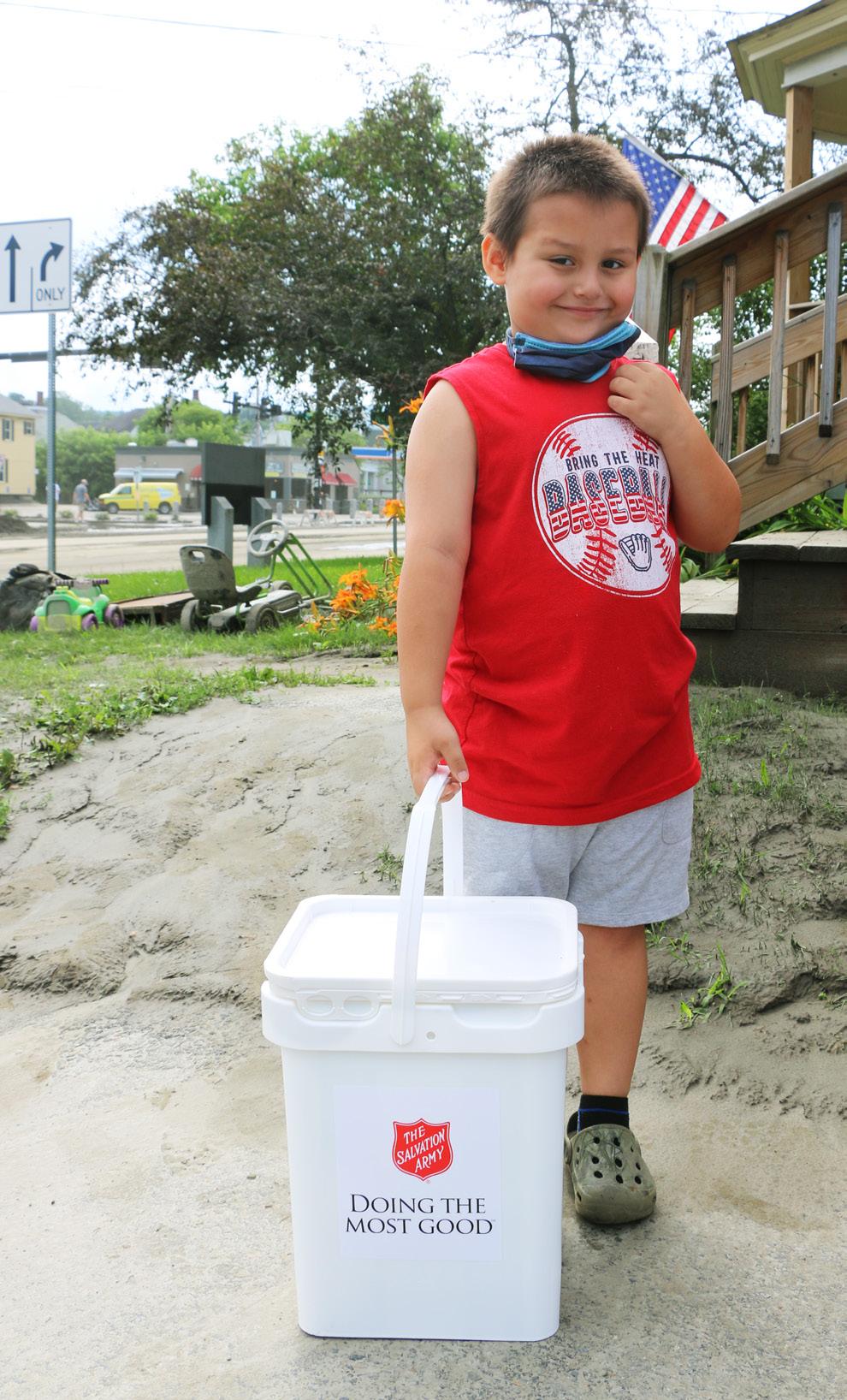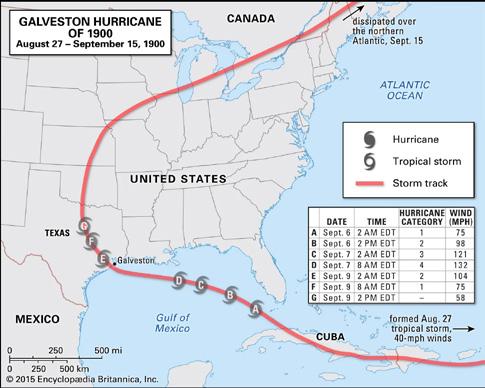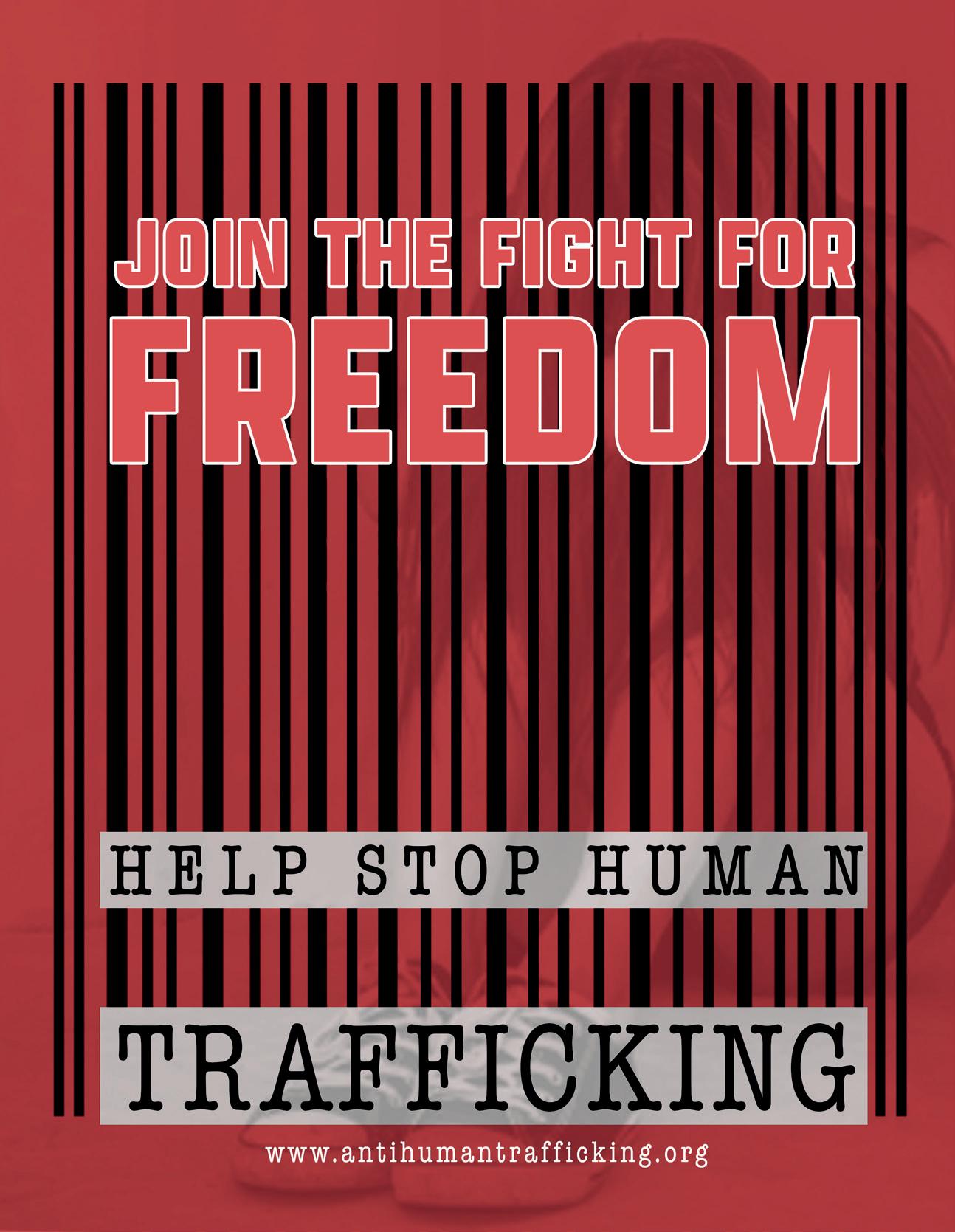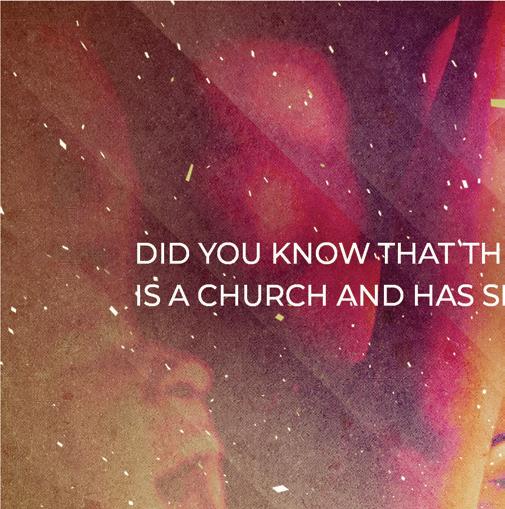October 31 is also Reformation Day! What does that mean?
Meet the pastors of the Salvation Army in “Witch City,” Salem, Mass.
Healthy practices for the whole family help combat childhood obesity.

VOL. 9 NO. 5, 2023
p. 14
p. 10
p. 31
SUNDAY • SEPTEMBER 24, 2023



International Day of Prayer for Victims of Human Trafficking









If you or someone you know needs help, call 888-373-7888.


To learn more about how The Salvation Army fights human trafficking, and how you can help, scan the code.

WHO WE ARE
People
Lieutenant Melissa Bonet followed a unique path from Florida to The Salvation Army in Queens, N.Y.
page 6
Programs
Podcasters share the work and ministries of the Army in Massachusetts. Plus: How popular are podcasts?
page 7
Faith in Action
Being Salvation Army pastors in “Witch City” is no ordinary role. But they don’t let the town’s past or present keep them from meeting and welcoming the community.
page 10
History
October 31 is Reformation Day! That event not only changed the world, but had a profound impact on the formation of The Salvation Army.
page 14
FEATURE
One in Christ
Since the day William and Catherine Booth founded The Salvation Army, women have served in pivotal roles.
page 16
RECOVERY
Waking up on “Holy Grounds”
The Salvation Army in Portland, Maine, answered the call when African refugees needed housing. The newcomers have also loved getting coffee each morning.
page 22
LIVING
Spiritual Life Development
New neighbors arrive from Central America. What happens next is inspiring.
page 28
Ministry
Diane Kearney overcame cerebral palsy to graduate college and be a volunteer for 50 years.
page 30
Health
Learn how families can combat childhood obesity.
page 31
VOLUNTEER
David
Cornish
As a child of the ‘70s, David saw that the mission of The Salvation Army closely aligned with his own principles.
page 32
Coeur Ngabo teaches computer skills and English as a Second Language to recently arrived refugees in Portland, Maine.

1 SACONNECTS.ORG WHAT’S INSIDE
VOLUME 9 NUMBER 5
Leah Carter / Leah’s Lens Photography
CONTENTS


FOUNDER William Booth
GENERAL Lyndon Buckingham
TERRITORIAL LEADERS
Commissioner William A. Bamford III
Commissioner G. Lorraine Bamford
CHIEF SECRETARY Colonel Ivan K. Rock
DIRECTOR OF INTERNAL COMMUNICATIONS
Joseph Pritchard
EDITOR IN CHIEF / DIRECTOR OF PUBLICATIONS
Warren L. Maye
MANAGING EDITOR Robert Mitchell
EDITOR / HISPANIC CORRESPONDENT
Hugo Bravo
ART DIRECTOR Reginald Raines
PUBLICATION CONTENT
MANAGER AND DESIGNER
Lea La Notte Greene
GRAPHIC DESIGNERS
Dave Hulteen Jr., Joe Marino
STAFF PHOTOGRAPHER Lu Lu Rivera
CIRCULATION Doris Marasigan
THE SALVATION ARMY MISSION STATEMENT
The Salvation Army, an international movement, is an evangelical part of the universal Christian Church. Its message is based on the Bible. Its ministry is motivated by the love of God. Its mission is to preach the Gospel of Jesus Christ and to meet human needs in His name without discrimination.
The unthinkable
WARREN L. MAYE Editor in Chief
The roles that most women play in society are typically underrated. What they do for their children and families is usually a matter of life or death, but because they are so steady and dependable at it, their work is frequently taken for granted.
That is, until the unthinkable happens. That moment can be likened to a photo I discovered on social media the other day. Seeing it created for me one of those scrolling stoppers, when I had to investigate the story thoroughly before I could move on.
At first glance, it appeared to be five baby birds in a nest with their mouths wide open. Clearly, they had anticipated receiving breakfast from their devoted mom. But upon closer inspection, I realized that I was looking at their tiny skeletons.
To confirm this, I read the comments people had posted. I immediately came across this one, “The mother must have been killed.” That was also the consensus of other responders—that she would have never abandoned them for any other reason.
In this issue of SACONNECTS, we talk about courageous women who have dedicated their lives to preaching the gospel of Christ from a pulpit and who perform other forms of essential ministry, volunteerism, and philanthropy. From helping African refugees find their way, to feeding and housing youth in the United States who have run away, to building a spirit of love in communities everywhere, women in our stories have helped to create sustainable, lifelong, and transformative experiences for everyone.
You will see for yourself how, since its inception, The Salvation Army has been led by women who have played pivotal roles. Through God’s grace and love, they have helped families survive in the aftermath of disasters, during other crises, as well as ongoing struggles.
As you face the many challenges of your life, be assured that The Salvation Army’s undying commitment is to make sure that the unthinkable, whatever that might be, never happens to you.

3 FROM THE EDITOR www.saconnects.org | @saconnects SACONNECTS is published by The Salvation Army USA’s Eastern Territory. Bulk rate is $12.00 per issue for 25–100 copies. Subscriptions are available. Write to: SACONNECTS, The Salvation Army, 440 West Nyack Road, West Nyack, NY 10994–1739. Vol. 9, No. 5, 2023. Printed in USA. Postmaster: Send all address changes to: SACONNECTS, 440 West Nyack Road, West Nyack, NY 10994–1739. SACONNECTS accepts advertising. Copyright ©2023 by The Salvation Army, USA Eastern Territory. Articles may be reprinted only with written permission. All scripture references are taken from the New International Version (NIV) unless indicated otherwise. Member since 2015 Award winner 2016, 2017, 2019, 2020, 2021,
2022



Love Beyond Floods Hot meals. Clean–up. Hope. Scan this code to learn more and give. 1-800-SAL-ARMY disaster.salvationarmyusa.org
WHO WE ARE
Did you know?
Even William Booth, Founder of The Salvation Army, experienced a “reluctant belief” in some aspects of the super— natural. He shared his thoughts on such hauntings in an essay called “A Ghost Story.”

The Salvation Army’s Emergency Disaster Services (EDS), began all the way back in the year 1900. The event was a devastating hurricane that destroyed Galveston, Texas, and resulted in approximately 5,000 deaths. Since then, EDS travels all over to help people and their communities rebuild.

DONOR CORNER

During the Great Depression, Mary Lindsley (top right) was raised by her father. They were grateful for the help they received from members of the community; such kindness gave Mary hope that life would get better.
To learn more and to donate to disaster relief near you, visit www.salvationarmyusa.org/usn/help-disaster-survivors
3 million
refugees
have been admitted to the U.S., since 1975.*
The Salvation Army, along with other humanitarian groups, has helped support these newcomers by providing essentials, and helping them find permanent housing and jobs. The Salvation Army in Portland, Maine, has been doing just that.
22.
Pop Quiz
* UNRefugees.org
Who was the first woman general (leader) of The Salvation Army?

a Evangeline Booth
c Catherine Booth
b Eva Burrows
d Eliza Shirley
When Mary became an adult, she wanted to give that same sense of hope and practical help to young people in dire situations. So, The Salvation Army Booth House Shelter for Runaway and Homeless Youth in Syracuse, N.Y., which helps children from age 12–17, became the recipient of her help. Lindsley established an endowment for the shelter, which continues today, under her daughter, Mary Pat Lindsley (top left).
Through a recent donation, the Booth House was able to furnish its new location with beds for its 15 bedrooms, and furniture for the living and dining rooms.
“It’s an incredible blessing that Mary Pat continues to honor her mother’s passion and legacy of giving to Booth House,” says Anita Leitgeb, donor relations director of The Salvation Army Central New York Region. “Her ongoing support positively impacts the lives of teens in crisis and puts them on a positive trajectory in a welcoming, affirming, and inclusive setting.”

Scan this code to read “A Ghost Story”, by William Booth. Read more on page
!
iStock 5 answer:
Courtesy of Mary Pat Lindsley
a)
Evangiline Booth
I came to Miami in 1997 from Puerto Rico to study pastry design. Two years later, I started a culinary career that lasted over 20 years. The culinary world is a male–dominated industry. If women want to move up in it, they must prove that they can do everything without asking for help. At one point, I had my own business, and at the same time, I worked for a private clubhouse as a pastry chef, preparing food for athletes such as Derek Jeter and John Cena. I also spoke at high schools to teens interested in culinary arts. Young people are fascinated by famous TV chefs, but they don’t always see the time, effort, burns, and cuts the chefs suffer to get there. Culinary arts is still my passion and I hope that one day I will include it in my ministry.
A taste of the Army
Interview by HUGO BRAVO
Lieutenant Melissa Bonet, pastor at The Salvation Army Ridgewood Citadel in Queens, N.Y., talks about her former career in pastry design, becoming a member of the Army for the first time in Clearwater, Fla., and why being “God— fearing” is a different mindset from “fearing God.”

My church before I joined The Salvation Army had a ministry where we would cook full–course dinners and take them to a local home for women. We would spend time listening to the women talk about their lives. Many of them had escaped abusive relationships. I knew their fears because, before I met my husband, I was also in an abusive relationship. I felt trapped and worried about the safety of our children. Just like the women I visited, I had been led to believe that, without our abusers, we were nothing. Talking to those women opened my eyes. I realized that I had to take my children and leave, just as they did, before my situation got worse.
Evil will try to tempt you through your passions. At one point, I strayed from the Lord. A woman who had seen my business advertisements asked me to make cakes for her parties. She promised new clients and work opportunities. But I didn’t realize that she was also involved in some non–Christian rituals and traditions, even though she claimed to be a Christian. Before I knew it, I was spending time with her and wearing the same type of jewelry and ornaments as she did. Thankfully, I pulled away from her influence and returned to God. It’s interesting how He prepared me for my future. Now I can see such negative influences in places like New York, where cultures and beliefs come from all over the world.
Neither I nor my husband had grown up in the Army, but we had visited the College for Officer Training in New York. When we returned to Florida, we began to attend a corps in Clearwater. I thought that the ministry would frown upon training us because we would then have to leave to serve in another territory. But they fully supported our unique path in The Salvation Army. I also noticed how active the wives of pastors were here. Wives of pastors I had met before were just doing crafts and arranging flowers. But here, women were pastors too; they were running the church and getting their own hands dirty. My husband and I knew that was going to be us someday.
Many of us may have had parents who said, “Go to church or God will punish you. Pay attention or you will make God angry.” They said these things hoping to make us God–fearing people. It is about having reverence for Him, knowing His power, and accepting that He is in control. Yet fearing the Lord gets passed down and we forget to remind our children that God is also love and eternal life. We spend so much time talking about what to avoid, that we sometimes forget to mention what we must look forward to when we are in His presence.
6 Volume 9 Number 5, 2023 WHO WE ARE PEOPLE
A ministry of pod A ministry of pod
by HUGO BRAVO
As with so many creative ideas today, “The Salvation Army Plugged In Podcast,” originated from the need to reach others during the COVID–19 pandemic.
Plugged In Podcast is hosted by Matthew Luhn, divisional Music & Gospel Arts director, and Captains Loreita and Nate Hinzman, divisional youth secretaries in Massachusetts. In 2021, while in–person gatherings were forbidden due to COVID–19 restrictions, the trio hosted a weekly online Sunday school called “Mass Chaos.” When face–to–face gatherings returned, people recognized Matthew and the Hinzmans from their Sunday show.
Says Matthew, “There’s great value in creating a local online presence. Because of ‘Mass Chaos,’ people knew us from stories we shared without ever having met us. Now, we wanted to create a way to unclutter people’s lives, provide a sense of community, and bring the Gospel in enjoyable, digestible pieces.”
The Plugged In Podcast team discusses local ministry, tells stories from their past, and welcomes guests. Matthew says that, though there is a loose outline for each episode, each host comes prepared with a topic that the others do not know about.

“As the show has gone on, we’ve settled into our roles. Loreita and I play off each other. She’s sort of my folly, while Nate is
more of the quirky one,” says Matthew.
Those quirky topics lead to a unique, captivating ministry. For example, a conversation about the strangest places where the hosts have ever fallen asleep segues into Nate telling a story about the biblical character Eutychus. Neither of the other hosts could recall ever learning about him. As Eutychus sits on a third–story windowsill to listen to the Apostle Paul preach into the night, Eutychus goes to sleep and falls out the window to his death.
Paul, upon seeing this, brings Eutychus back to life through the power of God. After carrying Eutychus back to his home, Paul then goes back and continues the sermon. Captain Nate says that the story is not a warning to never feel tired or sleepy in church, but rather a reminder to always look for what keeps us awake spiritually. We can all get distracted and lulled by daily life, but even when we fall asleep, God will be there to wake us up and heal us.
“Nate is an incredible speaker of the Word of God,” says Matthew. “And he tells it in a way that’s relatable to an audience.”
That audience is mostly young adults from the corps, as well as people who work at the camps, in the music programs, and
HOW POPULAR ARE PODCASTS?
There are over 3 million active registered podcasts, available in more than 100 languages. Podcasts are most listened to among people between the age of 12 and 34. Fifty percent of that age group listens to podcasts every month.
South Korea has the highest number of podcast listeners globally, with 53 percent of the population having listened to one. Other countries with high numbers of listeners are Spain, Ireland, Sweden, and the United States. Chile is the nation with the fastest–growing podcast audience at 84 percent.
A listener in the United States will enjoy an average of 8 podcast episodes per week, and 79 percent listen to podcasts on their smartphone.
The United States podcast industry is valued at $2 billion. It is expected to double by 2024.
with the volunteers. Many of them say that the Plugged In Podcast is perfect for their commute to work or to church. “Even officers have mentioned to us how relatable and funny we can be,” says Matthew. “That was a big surprise. I really thought Army officers might have brushed off listening to a podcast.”
One of the recurring segments of the podcast is called “So Stinkin’ Proud Of.” Here the hosts talk about young people who are doing work that is worthy of recognition, whether it be in school or for the Army. The segment made listeners reach out to the people mentioned and encourage them. That recognition for those “doing the most good” is what Matthew wanted the most from doing the podcast.
“Even though a million people aren’t listening to us, and audiences are always a moving target, we’re good with that,” says Matthew. “Every time we record an episode, we end with, ‘That’s the most fun we’ve had all week.’”
Comedy is the most popular podcast genre in the United States, followed by news, true crime, sports, and fitness. The most listened to podcasts worldwide are “The Joe Rogan Experience,” “The Daily” by The New York Times, and “This American Life.”
To listen to the “Plugged In Podcast,” scan the following QR codes:


APPLE SPOTIFY 7 SACONNECTS.ORG WHO WE ARE PROGRAMS


this QR code to find out more about Salvation
near you!
Scan
Army camps
Young campers pray together after seeing a “Jesus Theater” performance at a Salvation Army camp in Ohio. At Camp SWONEKY, as with other such Salvation Army camps around the United States, outdoor activities include times of spiritual reflection and renewal as well as sports, music, games, food, and fun!
 photo by Captain Darell Houseton
photo by Captain Darell Houseton
WHO WE ARE SNAPSHOT
Many tourists are surprised to learn that this statue, despite being next to the Salem Witch Museum, is not of someone involved in the Salem Witch Trials, but of Roger Conant, the founder of the city. Similarly, tourists and even other Christians are surprised to see a thriving Salvation Army church in Salem, only a mile away from the museum.

Pastors of
Witch City

In the historic town of Salem, Mass.,
by HUGO BRAVO
When Major Richard Sanchez got the news that he and his wife, Major Lolita Sanchez, would be the next officers to serve as pastors at The Salvation Army in North Shore, he couldn’t help but feel excited.
“I thought about how interesting it would be to serve in a town with so much history. I guess I’m not a typical pastor,” he says laughing.
The Sanchezes spoke to Salvation Army pastors who had served at the North Shore Corps, which was also known as the Salem Corps. Those pastors warned them that running a ministry in a place like Salem would be different than in other places.
“I know that there are officers, especially Hispanic ones like my wife and I, who would be a little confused or fearful if they saw what type of city Salem is,” says Major Richard. “Since childhood, we’re taught to stay away from any type of ‘brujeria,’ or witchcraft.
“We get asked all the time how we could survive here, or if we’re fighting everything around us. It’s funny when tourists are surprised at seeing The Salvation Army in Salem, yet they’re here too with their
own families,” says Major Lolita. “I remember we met a pastor from out of state who had come to see Salem with his family. He returned to his car early, because he was shocked at how ‘dark’ he said the city was.”
Though the Sanchezes are now serving The Salvation Army in New Jersey, they look back on their time in Salem with fondness, knowing that no matter how “dark” the city of Salem may be for others, the light of The Salvation Army North Shore Corps has continued to shine for over 100 years.
A bewitching history
Salem is known for its witch trials, a series of court hearings and prosecutions that took place between February 1692 and May 1693. They began when a group of teens who claimed to be possessed by the devil accused several local women and men of practicing witchcraft. Fueled by fear, misguided religious practices, and political anger, the accusers triggered the arrests of as many as 200 people, 20 of whom were put to death. The trials ended when a new city government ordered the release of any remaining residents who had been accused.
Today, Salem is one of the more famous
tourism spots in New England. Rather than shy away from its past, residents embrace it with witch museums, re–enactments of the trials, and haunted walking tours. There are stores where visitors can buy merchandise from movies such as “The Crucible,” “Harry Potter,” and “Hocus Pocus,” the latter of which was filmed in Salem. Even the police department’s shield has the words “Witch City” over a shadow of a witch riding a broomstick.
Major Lolita admits that for the first three years of their appointment, she wanted nothing to do with the more infamous aspects of the city.
“Officer friends would tell us to never go out to eat in Salem or walk by any of those places,” says Major Lolita. “But the COVID–19 pandemic taught us that we needed more outreach, not less. We can’t just be huddled in here by ourselves.”
Ministry of presence
The month of October in Salem is when the city gets its highest number of tourists. On Saturdays in the month, the city holds an outdoor festival to promote all aspects of its history as well as local businesses and attractions. Last year, the North Shore Corps set
The Salvation Army shines God’s light on spiritual darkness as it does everywhere else—by meeting human need.
DeAgostini / Getty Images; background: eberhard grossgasteiger / Unsplash 11 SACONNECTS.ORG WHO WE ARE FAITH IN ACTION



“There’s an audience in Salem that will be drawn to our type of ministry. The Salvation Army needs to have a presence in events like this, because any place is a place to show God’s love.”
Majors Richard Sanchez (above, far left) and Lolita Sanchez (above, far right) take part in Salem’s outdoor festival in October.
12 Volume 9 Number 5, 2023
photos courtesy of the Salvation Army North Shore Corps
up a table and tent at the festival for the first time. The pastors and volunteers gave away candy, talked about the services and history of The Salvation Army in Salem, and prayed with visitors from all over the world.
“It was a great experience. We need to have a presence in events like that, because any place is a place to show God’s love,” says Major Lolita.
Says Major Richard, “Salem wants to be a place that’s open to everyone, and we know there’s an audience that will be drawn to our type of ministry.”
Just as tourism has been profitable for Salem, the North Shore Corps has also found a way to use their presence to raise funds for the church. Being close to museums and restaurants made it possible for the church to share its parking lot with tourists on busy days in October, for a fee.
“I think some of them thought that a Christian church in Salem would be a building that’s falling apart,” says Major Richard. “But when they walked in, they saw a chapel with beautiful stained–glass windows, a busy food program, and a spot for children’s archery lessons. Some even gave more than what the parking fee cost. They saw first–hand what was being done at Salem’s Salvation Army in the name of God.”
A hidden crisis
It’s easy to find a house said to be haunted by the dead in Salem. But it’s the houses with living, struggling families in them that the North Shore Salvation Army has made it its mission to help. As the prices of homes and condos in the state go up, so do its poverty levels.
“It’s very expensive to live here,” says Major Richard. “Look past the tourism aspect of Salem, and you will see this is a town going through a major housing crisis. We help many families pay their rental and utility bills. We get numbers in the hundreds for our food programs.
“People who are also struggling to get by say to us, ‘We see and appreciate what you’re doing here for others,’” says Major Richard.
“When we arrived in Salem, I was very surprised to see the number of social services in the North Shore area,” says Major
Lolita. “There is a homeless shelter, multiple food pantries, a Boys & Girls Club, a YMCA, and Catholic Charities. As pastors, we’ve served in other places where resources such as those weren’t as readily available.”
With the number of providers in the city, the pastors admit that it was hard at first to find a real niche of where they could help. But when COVID–19 closed all other service locations in 2020, the North Shore Corps members remained as busy as ever, driving to neighboring towns and cleaning out their local food pantries since they had no place to distribute their goods.
“We had food racks in the parking lot so people could pick out what they needed, like in a shopping aisle,” says Major Richard. “Everything was open air, and our numbers tripled. People who were coming here once a month for help now were coming every week.”
The work continues
Beyond the spectacle of Salem’s history, the pastors acknowledge that the culture can harbor a certain darkness and negativity towards Christians. “You will find spiritual warfare in any location, but in Salem, it can be on display. It’s intertwined with its history,” says Major Richard.

“I can laugh at some of the more outrageous aspects of Salem, but it’s true that some people here are very open about their worship of the occult. We have members here in our corps who, at one point, were involved in cults that sought to bring harm towards people of faith.

“However, I choose to remember that scripture says that greater is He in us than he in the world. God sent The Salvation Army and us to the North Shore, so why should we be afraid or intimidated when there is still work to do here?

“We have a community that is receptive to our mission, but we can’t just sit and wait for them to come to us. We must go to them, with our tent, our shield, and our message,” says Major Lolita. “We can have a great relationship with the city, while still being true to who we are and reminding everyone that The Salvation Army in Salem is not going anywhere.”
A Salem welcome
On Saturday, April 5, 1884, the Salem Evening News announced that The Salvation Army would arrive the next day. By the paper’s description, this was not to simply be an appearance of a new church. It would be the coming of a movement that would embrace the city’s sinners and make them part of its ministry. In the following days, the reporters covered the activities of The Salvation Army, led by Captain William Bayley, who proudly walked the streets of Salem in a red woolen sweater with “The Salvation Army” written on it in gold.
Reporters also interviewed locals who had found redemption through the Army. These saved souls, with peculiar names such as Bloodwashed Willie, Merry Mary, and the Hallelujah Scotsman, were all considered the worst that Salem had to offer. But through The Salvation Army, they no longer saw themselves as unworthy of God’s love.
The Army’s outdoor services attracted hundreds of listeners, with attendance at nightly meetings reaching as many as 2,000. But there was resistance; some clergymen called this new ministry a type of “activism.” They were accustomed to shunning the people that the Army welcomed and did not see open–air services as worthwhile or even useful. But the Salvationists, who remained true to their tradition and history, were unrelenting as they shared the Gospel and spoke their minds in the face of opposition.
Even the Salem Evening News, that had approached the Army with careful, if somewhat reluctant coverage of its happenings, conceded that the work being done by The Salvation Army in Salem was necessary. In an editorial on April 11, only five days after the Army’s arrival, a reporter wrote:
“If the members of The Salvation Army are to be believed, the devil has a better hold on Salem than on any town yet heard from. If this is really so, it is time our clergy were putting on their war paint.”
13 SACONNECTS.ORG
The Witch No. 3 Depiction of the Salem Witch trials by Joseph E. Baker (1837-1914) Published ©1892 /H.S. Photos / Alamy Stock Photo
Happy Reformation Day!
by ROBERT MITCHELL
Five Solas
The message of the Reformation was summarized in five simple Latin phrases:
Sola Gratia
(grace alone): People are saved by the grace of God alone. (Ephesians 2:8–9).
Sola Fide (faith alone): People are saved through faith alone in Jesus Christ.
(Ephesians 2:8–9, John 3:16)
Solus Christus (Christ alone): Jesus Christ alone is our Lord, Savior, and King. (Acts 4:12, John 3:16)
Sola Scriptura (Scripture alone): The Bible alone is our highest authority, not church tradition.
(Timothy 3:16–17, 1 Thessalonians 2:13)
Soli Deo Gloria (to the glory of God alone): People live for the glory of God alone.
(Psalm 115:1)
n Oct. 31, children and adults will again indulge in the pagan custom of Halloween. But did you know that a history–changing event known as the “Protestant Reformation” marks the same day?
“Reformation Day” commemorates the moment when, in 1517, a priest and scholar named Martin Luther boldly approached the Castle Church in Wittenberg, Germany and nailed a list of 95 grievances to the front door. Religious leaders and congregants were stirred; a spiritual movement began.
Luther used, what became known as his “Ninety–Five Theses,” to effectively protest these wrongs against the Catholic church, most notably “papal indulgences,” or the alleged forgiveness of sins in exchange for money given to the church.
Luther believed that men and women were justified (made right with God) by grace alone, in faith alone, in Christ alone, through scripture alone, to the glory of God alone. These five statements or “solas” were the bedrock of that protest and are still widely taught today.
Luther’s life was reportedly changed by Romans 1:17, “The righteous shall live by faith.”
He also was influenced by other verses, including Ephesians 2:8–9: “For it is by grace you have been saved, through faith—and this is not from yourselves, it is the gift of God— not by works, so that no one can boast.”
Luther taught that we find salvation totally by grace (unmerited favor). Good works don’t save us, but instead are an outward manifestation and confirmation that we are spiritually transformed. Christ’s sinless life and death on the cross for our sins makes us perfect in the eyes of God.
2 Corinthians 5:21 says, “God made him who had no sin to be sin for us, so that in him we might become the righteousness of God.”
The Protestant Reformation would sweep
like wildfire from Germany and be carried on by Ulrich Zwingli, John Calvin, John Knox, and many others. Luther’s Protestantism also influenced the Puritans who came to North America in the early 17th century.
Luther certainly wasn’t the first to run afoul of church authority. He joined a long list that included Jon Hus and John Wycliffe, who purportedly translated the Latin Vulgate, a late 4th century Latin translation of the Bible, into English.
Today, Luther’s legacy lives on in Protestant churches worldwide and his influence was even felt in the formation of The Salvation Army.
One of the early reformers to have a profound impact on Luther was Hus, a Czech priest who was burned at the stake as a heretic (non–conformist) in 1415, 68 years before Luther was born.
The name “Hus” is translated “goose” in Czech. An eyewitness to the execution reported that Hus, while dying in the flames, said “You can cook this goose but within a century a swan shall arise who will prevail.” His words came true when Martin Luther was born 68 years later and nailed his theses to the door 102 years after Hus was martyred.
Hus also inspired the founding of the Moravian church, which in the 18 th century sent missionaries around the world. The Moravians, German Protestants, are widely acknowledged as the first Protestants. English evangelist John Wesley was heavily influenced by the piety of the Moravians.
Wesley’s “Aldersgate Experience,” in which he notes his “heart was strangely warmed,” occurred in a Moravian meeting in London on Aldersgate Street. Wesley had gathered with others to read the works of Martin Luther.
“I do think Wesley was one of the uncredited reformers,” says Salvation Army Envoy Steve Bussey. “In fact, I think he is by far the most significant influencer that formulated evangelicalism. [Jonathan] Edwards and [George] Whitefield did play a part—but Wesley codified and scaled it more than anyone.”
Under 100 years after Wesley’s death in 1791, William Booth founded The Salvation Army. Its doctrines are distinctly Wesleyan. Booth, as a young man, attended the Methodist church, founded largely on the teachings of Wesley and his brother, Charles. Booth was later a Methodist preacher before founding The Salvation Army in 1865.
“To me, there was one God, and John Wesley was His prophet,” Booth said.
So, as we reflect on the importance of the Protestant Reformation and Reformation Day, let us equip ourselves to be bold but loving sharers of our faith.
o 14 Volume 9 Number 5, 2023 WHO WE ARE HISTORY
October 31, 1517 marks the beginning of a movement that ultimately became known as the Protestant Reformation.
Start with a prayer.
Dear Lord Jesus, I do now ask you to forgive me of my sins and come into my heart as my Lord and Savior. In Jesus’ name I pray. Amen.
If you have more questions on spiritual matters or where to begin scan this code.

Five things God wants you
to know
You need to be saved. “For all have sinned and fall short of the glory of God.”
—ROMANS 3:23
You cannot save yourself. “He saved us, not because of righteous things we had done, but because of his mercy.” —TITUS 3:5
Jesus has provided for your salvation.
“For God so loved the world that he gave his one and only Son, that whoever believes in him shall not perish but have eternal life.” —JOHN 3:16
You must accept Jesus for salvation. “Believe in the Lord Jesus, and you will be saved.”
—ACTS 16:31
Now is the time to accept Jesus as your Savior.
“I tell you, now is the time of God’s favor, now is the day of salvation.”
—2 CORINTHIANS 6:2

15 SACONNECTS.ORG

16
One in Christ
by COLONEL (DR.) JANE T MUNN
Iwas born and raised in the Church of the Nazarene, where my mother, though not in “ordained” ministry, was a powerful spiritual influence, and gifted at discipling countless individuals throughout her short life.
My father, who was an elder in that same denomination, treated me, his only daughter, with great respect, communicating to me in mostly unspoken ways, that I was intelligent, competent, and capable. Both my parents, formed in this church of the 19 th century Wesleyan–Holiness movement, established in my young heart a foundation of confidence, and an expectation of gender equality, that remains today.
My first intersection with The Salvation Army was as a teenager,

A historical account of gender equality among evangelical church leaders of the Wesleyan—Holiness movement.
17 SACONNECTS.ORG
working at a summer camp for underprivileged children in greater Boston, Mass., at the Army’s Camp Wonderland. It was there that I first encountered women who were gifted for, and had access to church leadership positions. They were women preachers, women making decisions for the organization, dynamic women. This left a lasting impression on me, one that was reinforced many times, with redemptive effect, in the ensuing years.
As a young adult, when I was considering the best way to offer my life in service to Jesus and the world, The Salvation Army, having become my community of faith, was the obvious choice. After the necessary course of study and preparation, I was commissioned and ordained as a Salvation Army officer in 1987, with a full commitment to serving the Lord. And so, I have, ever since.
Freedom, the Wesleyan way
At the time of this writing, it has been 285 years since John Wesley reluctantly attended a Moravian meeting on Aldersgate Street, London, UK and found his “heart strangely warmed.” This experience of a deep inner assurance of God’s love was life–changing for Wesley, and as a result, for millions of others who followed him.
Wesley was profoundly formed intellectually and spiritually through the remarkable influence of his mother, Susanna Wesley, who gave birth to 19 children. Her life and journey shaped the millions of descendants of Methodism, including The Salvation Army, in ways we see today.
The Rev. Alfred Day, Methodist archivist and historian observes, “We see in [Susanna] and in her sons this tension between Puritan evangelicalism and Church of England prayer book order, spirituality and sacramentalism. Long before women were ordained, Susanna would sometimes gather friends around the kitchen table and lead prayers when her preacher husband was away. She kept the parish going in his absence.”
The World Methodist Council is made up of 80 Methodist, Wesleyan, and related Uniting and United Churches (churches that are forming groups) representing over
80 million members in 138 countries. All of these churches have descended directly or indirectly from the religious influence of John Wesley. Further, many female clergy today have roots in Wesleyanism (thank you Susanna!).
“We envision God’s Kingdom reality,” states the vision statement for the Wesleyan Holiness Women’s Clergy, “where the biblical foundations of gender equality are fully lived out across the Church as women and men lead together, following their holy calling.”
This organization of Wesleyan holiness women clergy includes leaders from The Church of the Nazarene, where I was raised, and The Salvation Army, as well as several other denominations.
Breaking down walls
In the book Women at the Crossroads, author Kari Torjesen Malcolm asserts, “The greatest breakthrough in opportunities for women to proclaim the gospel came with the Wesleyan revival in England in the eighteenth century.” These would include all subsequent expressions of Methodism, such as the Wesleyan Church, the Church of the Nazarene, the Christian and Missionary Alliance, and The Salvation Army.
The most recent Church of the Nazarene manual states, “The Church of the Nazarene supports the right of women to use their God–given spiritual gifts within the church and affirms the historic right of women to be elected and appointed to places of leadership within the Church of the Nazarene, including the offices of both elder and deacon [emphasis added].” Essentially, the Church of the Nazarene believes that both Scripture and history affirm the role of women in Church leadership and in all positions. Since its founding in 1908, the Church of the Nazarene has ordained women.
In 2017, Dr. Carla Sunberg was elected the Church of the Nazarene’s second ever female General Superintendent—the highest elected position in the Nazarene church, overseeing the denomination.
The early practice of The Salvation Army was formed by its spiritual ancestry

“Jesus wept.”
— John 11:35
“I heard the question from the Holy Spirit, ‘Is Jesus weeping for you? Why is He weeping?’
That was it. My immediate response was to go to the altar. A few months later, I was at the College for Officer Training (CFOT).”
18 Volume 9 Number 5, 2023
— Major Silvia Machado, corps officer, Manhattan Citadel
in the Wesleyan revival of the 18th century and the pervasive influence of the holiness movement that grew out of that revival. The role of Catherine Booth, co–founder of the Army, was significant in promoting women in leadership and deserves particular attention.
Equalizing women in society

From the days of the early church fathers as shown in the patristic or early Christian writings, Dr. Roger Green, a Salvation Army theologian, argues that there has been an emphasis on the correlation between personal holiness and social responsibility, bringing significant societal benefits. “One such example of this is found in the success of Christianity with equalizing women in society.” These three emphases: personal holiness, social responsibility, and equality of women were foundational in the practice of The Salvation Army.
According to historian Dr. Edward McKinley, an influence on The Salvation Army in its earliest years in terms of inclusion of women in ministry leadership was that of the Quakers, who were members of the Religious Society of Friends.
“Booth found himself at the head of a rapidly growing movement badly in need of local leadership and funds,” wrote McKinley. “Women flocked to The Army, and Booth ... used women in the entire range of Army work ... almost from the very beginning. Catherine Booth, an extraordinarily intelligent and capable person, spearheaded this reform. The Quaker example proved, again, helpful and encouraging in this regard ... It is clear that the early Salvationists repeatedly made eager use of the Quaker example in employing women in the Christian ministry.
“The unity of conviction on this point between Catherine and William was sufficient to overflow into their own practice within their marriage and into their leadership of the newly established Salvation Army.”
In terms of John Wesley’s influence upon The Salvation Army, it would be difficult to imagine a stronger statement than that of co–founder William Booth,
who said, “I worshipped everything that bore the name Methodist. To me there was one God, and John Wesley was his prophet. I had devoured the story of his life. No human compositions seemed to me to be comparable to his writings ... and all that was wanted, in my estimation, for the salvation of the world was the faithful carrying into practice of the letter and the spirit of his instructions,” as he wrote to Booth–Tucker in 1892.
A passion for social justice
William Booth left the Methodist church while still a young man and established The Salvation Army, infusing his Wesleyan theological roots with a renewed evangelistic zeal and a fiery passion for social justice.
General (Dr.) Paul A. Rader, a former international leader of The Salvation Army, argues that the holiness movement itself championed women’s rights and female equality. Specifically, “Phoebe Palmer exercised extensive influence in the struggle for women’s rights ... it was the evangelicals, and principally those of holiness persuasion, who championed the cause of female equality in church and society.” Palmer had a singular influence on Salvation Army co–founder Catherine Booth.
Major (Dr.) John Read, a Salvation Army minister and writer, underscores the significant, formative influences upon the early years of The Salvation Army. Methodism and Wesleyan doctrine and practice, various mid–19 th century movements of renewal and revival (noting specifically the example of Phoebe Palmer and the Quakers), and surprisingly, popular culture, were all influential.
Dr. Read wrote, “Freed from constraints of outdated and irrelevant ecclesiological and religious practices, the founders looked to the world for models and methods that would assist them in their God–given mission.”
The influence of Wesley, the Quakers, holiness doctrine, and the example of Phoebe Palmer, are all readily understood in terms of their historical influence in the empowerment of women in leadership as foundational to The Salvation Army.
19 SACONNECTS.ORG
53% of officers in The Salvation Army worldwide are women.
To learn more about Janet Munn’s work on gender equality in The Salvation Army, scan this QR code.
However, given the context of 19 th century England in which women were not empowered in leadership, and the strict standards of the puritan holiness lifestyle adhered to and preached by the Booths, the influence of popular culture is noteworthy.
Historian and author Dr. Pamela J. Walker offers insight as to specific ways in which Victorian English culture and the early Salvation Army intersected, specifically regarding gender roles. The Salvation Army “disrupted and refashioned gender relations in many facets of its work ... as Salvationist women challenged and resisted the conventions of femininity and enhanced women’s spiritual authority.” Further, in claiming the right to preach, women “disrupted a powerful source of masculine privilege and authority.” Walker concludes, “Virtually no other secular or religious organization in this period offered working–class women such extensive authority.”
Catherine Booth and inclusion
Much credit goes to Catherine Booth, co–founder of The Salvation Army, for the significant inclusion of women in leadership from the start.
In 1984, Norman H. Murdoch described it this way, “Catherine Booth recognized women’s powers of intellect and innate equality and elevated them to clerical parity with men. Although Catherine Booth did not break new hermeneutical ground in her discussion of scriptural support for the ministry of women, she did, through her public advocacy, force the introduction of thousands of working–class women into the ranks of ordained clergy.
Stated in an article in Christianity Today on activists, it reads, “Catherine Mumford Booth’s book, Female Ministry, a short, powerful defense of American Phoebe Palmer’s holiness ministry, was not a plea based on natural rights or other feminist themes of the day. Instead, she founded her argument on the absolute equality of men and women before God. She acknowledged that the Fall had put women into subjection, as a consequence of sin, but to leave them there, she said, was to reject the good
news of the gospel, which proclaimed that the grace of Christ had restored what sin had taken away. Now all men and women were one in Christ.”
William and Catherine Booth held strongly egalitarian views on women and men, radically so in the Victorian era. The following statement appears in the earliest founding documents of The Salvation Army—Orders and Regulations for Staff Officers of The Salvation Army in the United Kingdom in 1895, “One of the leading principles upon which the Army is based is the right of women to have the right to an equal share with men in the work of publishing salvation to the world ... She may hold any position of authority or power in the Army from that of a Local Officer to that of the General. Let it therefore be understood that women are eligible for the highest commands—indeed, no woman is to be kept back from any position of power or influence merely on account of her sex ... Women must be treated as equal with men in all the intellectual and social relationships in life.”
The deployment of women
The deployment of thousands of young women throughout Great Britain to advance the mission of The Salvation Army was a remarkable phenomenon in the late 19th and early 20th centuries. Consider the following statements in Salvation Army foundational documents relative to gender equality:
First, from The Constitution of the Christian Mission, Section XII, which changed its name to The Salvation Army the following year, “Godly women possessing the necessary gifts and qualifications shall be employed as preachers ... and shall have appointments given to them ... and they shall be eligible for any office.”
(Christian Mission Magazine, 1877)

Historically, The Salvation Army experienced explosive growth in no small part because of the involvement of tens of thousands of (mostly young) women in the mission of Christ. The release of these women into ministry was borne out of the influence of other Christian traditions both ancient and relatively recent and was

The scripture verse that led me to become an officer is Galatians 2:20. “I have been crucified with Christ and I no longer live, but Christ lives in me. The life I now live in the body, I live by faith in the Son of God, who loved me and gave himself for me.”
20 Volume 9 Number 5, 2023
—Captain Stephanie Sainteme, corps officer in Westbury, N.Y.
motivated both by theological and practical impulses. Further, the historical interaction between this burgeoning movement and 19 th century contemporary culture was synergistic, each influencing the other.
The rule of Christ
Contemporary statistics also make a strong statement regarding empowerment of women as demonstrated by ordained leadership within The Salvation Army. At the International College for Soldiers in September 2012, Salvation Army historian Dr. Roger Green noted that by percentage, The Salvation Army has more females in leadership than any other church, denomination, or Christian organization. For example, to date, 53 percent of officers in The Salvation Army worldwide are women.
Thus, The Salvation Army has from its earliest days given ready opportunity to women to be trained, ordained, commissioned, and deployed in leadership locally and globally, and that continues to be true. Salvationists specifically, as Wesley’s theological descendants, need a continued intentional commitment to opposing injustice and advocating on behalf of the powerless, including women within our ranks, and serving alongside the same. This is a vital aspect of our identity in Christ.
What is the rule of Christ? Is it a theocracy, which legitimizes a hierarchy, or the authority of a value confined to religion and the inner life of the soul? The charismatic rule of Christ in the community is essentially liberation from the violence and the pressures of the “powers of this world.”
 (Jüergen Moltmann 1989)
(Jüergen Moltmann 1989)
A new generation of women
During my appointments as a Salvation Army officer—particularly my appointments to leadership at the International College for Officers, and as principal at two Salvation Army training colleges, I have shared life with hundreds of women, from a wide range of ethnicities, cultures, and ages. I am deeply grateful for the abundant opportunities afforded me to learn how to support women in their personal and vocational development.
I continue to be a witness to a remarkable generation of younger women in The Salvation Army—gifted leaders, clear and courageous in their commitment to matters of justice, double—portion “daughters” in whom I take great delight!
For such a time as this What might this mean for you? How can you participate in strengthening the significant legacy of equal opportunity for women in The Salvation Army, in your church, or in your place of work? What opportunities are yours to empower others and to accept the invitation to join in? What words of God will you use to help stir the hearts of both men and women to serve Him? These are important questions for the time we live in today as we strive to become one in Christ.
One night I read the bible verse, ‘Seek first His Kingdom and His righteousness, all will be given to you.’ — Matthew 6:33 It stopped me to pray for His will for my life.
— Major Sunny Simpson, director of curriculum at the College for Officer Training
“ The Lord gives instructions. The women who announce the good news are a large army.”
21 SACONNECTS.ORG
—PSALM 68:11 (GWT)
Waking up on ‘Holy Grounds’
by ROBERT MITCHELL Photographyby LEAH CARTER
The children of asylum–seekers joyfully zip around on scooters and play games on the floor of this Salvation Army gym in Portland, Maine, as they wait for dinner. In a few hours, their parents will put down thin mattresses on that same floor and 77 people will sleep here.

Hundreds of asylees from various countries in Africa are showing up in Portland, but the housing market is tight and there are few prospects for work. The Salvation Army officers here make it clear to the press that they are not interested in discussing the “how” or “why” of the situation. They are simply focused on helping people through the love of Christ.
“The truth is, we have people in front of us who are cold, hungry, and have no place to sleep. So, we’re going to do what we have to do to care for them now because they’re here,” says Major Armida Harper, one of the officers in Portland.
The city’s shelters, ministries, and social services are full of migrants from Angola, the Democratic Republic of Congo, Rwanda, and Burundi. The Salvation Army is helping by providing many families with English as a Second Language (ESL), life skills, and computer classes so they can get jobs.
“We’re doing everything we can to help people ‘tool up’ so that when they are able to work, they will be successful,” says Captain Michael Harper. “They need to be able to speak English a little bit and have some basic computer skills.”
The Salvation Army in Portland, Maine, sees a need and fills it—in more ways than just one.
22 Volume 9 Number 5, 2023 RECOVERY

“I was a stranger and you welcomed me.”
23 SACONNECTS.ORG
—Matthew 25:35 (RSV)
The migrants go to a local YMCA during the day but come to The Salvation Army for dinner and to sleep. The Salvation Army is working with the Maine Immigrants Rights Coalition to provide space for 77 people, many of whom get coffee in the morning from the Army’s “Holy Grounds” coffee ministry.
“People were just showing up here in the middle of the night from California and Texas,” Captain Mike explained. “They
status back home. His wife was operated on under mysterious circumstances and is still not sure what was done to her.
This Muslim family went to Central America and then Mexico before entering the United States through the southern border. Segawa said sleeping on a gym floor is “no problem” because at least everyone is safe and dry.
“We were struggling; sleeping on the streets with rain and everything,” Adam says.
and provided us a place to sleep during this challenge and we appreciate that,” said Pedro, who is a Christian.
The family crossed the border in California and Pedro said he wasn’t quite sure where Portland was geographically, but he had grown fond of the area.
“Our goal is to live here permanently and achieve a higher purpose,” he said.
Tough road ahead
Helio Mateus from the Angola Community of Maine, a non–profit that helps Angolans, provides information and guidance to the frightened migrants. As a Christian, he also tries to offer hope.
“My faith teaches that it is possible to overcome obstacles,” Mateus says. “When we face hardships, we just give it all over to God, seek His guidance, and hopefully in a short amount of time, things can get better along the way.”
Captain Mike said the asylees face an uphill battle.
“There’s no housing in Portland. It’s all used up,” he said. “It’s become a humanitarian crisis.
“The folks sleeping in our gym may be here six or nine months with young children in tow. It’s difficult. It’s hard to be a large family sleeping on a gym floor every night and there’s no prospect of housing or even the ability to work.”
showed up wearing flip–flops, no coats, and nowhere to go. The city has been completely overwhelmed.”
Harrowing journeys
Few of the asylees speak English and those who do are guarded since they have family back home. They all have heartbreaking stories of escape and survival.
One example is Adam and Janelyton Segawa, and their son, Axam. The family left Uganda in October after being jailed and tortured for supporting the opposition National Unity Platform. Adam carries a newspaper clipping about his wanted
“I had to face many things while coming here with my family. I thank The Salvation Army for helping us in this situation. I am happy. I like it here. What I saw in Mexico, what I saw in Nicaragua and Guatemala, I think I am better off with my family.”
Adam said his goal is to be a truck driver in America and his wife is an experienced nurse.
Pedro Marin came to the United States with his wife and four children from Angola after running afoul of the government. He takes ESL classes at The Salvation Army in hopes of bettering his life.
“The Salvation Army has stepped up
Captain Mike said work permits are backed up and The Salvation Army and other advocacy groups are working with the federal government to loosen the requirements. Many of the migrants say they were told they would get a job, housing, medical care, and more in the U.S.
“They get here and there’s a gym floor,” he said. “They can’t work. There’s nothing to do during the day and they’re just shuffled from place to place. If the immigrant surge continues here in Portland, something is going to break. It’s just heartbreaking to see it.”
As rough as the life may be, Captain Mike said one of the migrants told him, “At least I don’t have people trying to kill me.”
The children playing in the gym display a joy that belies their conditions.

24 Volume 9 Number 5, 2023
Children who are migrants remain joyful despite their current circumstances.


 Migrants take English as a Second Language classes.
Migrants take English as a Second Language classes.
25 SACONNECTS.ORG
Families gather for dinner in a Salvation Army gym, where they also will sleep on the floor.
Lieutenant Kim Clark, a former pre–school teacher before becoming a Salvation Army officer, often plays with the kids and lets them watch DVDs.
“We allow them to have some joy and learn English,” she said. “They’re learning and they’re growing.”
Coffee is on!
Captain Mike said new advisory board member Lanre Fashina may soon start a weekly prayer meeting. Plans are also in place to start a brass band among the migrants.
In the morning, the migrants head to the front of the building to get coffee from the “Holy Grounds” window. The sidewalk is usually full of people when the window opens at 7 a.m. Captain Mike and others are often there to talk and pray with them.
Captain Mike says his church is right around the corner from an open drug market where people shoot up in broad daylight.
Crack pipes and syringes are a common sight, so hope is needed more than ever.
“We’re at the epicenter for where all the vice, crime, and need is,” he said.
On a recent morning, the ministry gave out 442 cups of coffee. When the window first opened, the clientele was 75 percent local homeless people, but now it’s dominated by the migrants.
“That’s because the asylum seekers struggle with homelessness for many months after they get here,” Major Armida said. “They’re in the shelters and hotels so coming to us in the morning is their way to get a hot drink.”
Coffee ministry seems to follow the Harpers wherever they go.
In 2017 while stationed in Manchester, N.H., Captain Mike started a coffee ministry called “Mobile Joe’s.” He and other volunteers would walk the streets and parks, and hand out coffee to homeless people from backpack dispensers.
A ministry around java
When the Harpers arrived in Maine, they noticed that people who suffered from homelessness, drug and alcohol addiction, and various forms of mental illness gathered behind the church in the morning after leaving two city–run shelters. No one in the community served coffee to the people and that void gave Captain Mike an idea.
Thanks to a $13,000 grant from the Good Shepherd Food Bank as part of a food pantry overhaul, Captain Mike was able to install a fast food–style window at the church so he could serve coffee every weekday. The ministry, called “Holy Grounds,” began in July and is growing robustly.


“It seems like I’m always doing something with coffee,” Captain Mike says with a laugh.
“The people must leave the shelters every morning. It’s tough to get put out on the street without even a cup of coffee,” Captain Mike continued. “Other agencies
26 Volume 9 Number 5, 2023
Chuck Liskey and Jean Williams are two of the volunteers for the “Holy Grounds” coffee ministry.
do lunches, but no one was doing coffee. We saw a great opportunity.”
Captain Mike said “Holy Grounds” started slowly with just 10 or 20 people, but word quickly spread, and the ministry now averages more than 400 coffee drinkers a day.
“The real genius of this is that if we went out in the streets and tried to talk to more than 400 people, it would be really tough,” he says. “But every day, five days a week, we get to spend 30 to 50 seconds with about 400 individuals. They come, one by one, up to the window. We hand them the coffee and we can pray with them, talk to them about their soul, and connect them to other services.”
Captain Mike said he and the ministry’s volunteers pray with 15–20 people a day and ask, “What else can The Salvation Army do to help?”
“We refer a lot of people to our social services office. They need socks, clothing or other services,” he said. “It’s really giving us access to the most needy and vulnerable people and getting them other comprehensive forms of help.”
Hot coffee, warm hearts
Major Armida said the “very simple evangelism” of the coffee window goes a long way.
“We let them know we care enough about them to give them something to drink when they can’t get it anywhere else,” she said.
The coffee recipients are grateful for the morning boost of hot caffeine, Captain Mike said.
“They thank us. They thank God. It’s great,” he said.
In appreciation for the coffee, Rick Logan sometimes sweeps the sidewalk voluntarily. He lives in a tent behind a Trader Joe’s, a situation he says was “not bad” until someone stole his portable heater.
“I come here every morning,” he says. “I can’t miss it. This is awesome because a lot of guys like me can’t afford coffee in the morning. I enjoy my coffee, but I can’t really afford it all the time.”
Logan said Captain Mike gave him a Bible and he has been invited to church many times.
Pete Meserve lives in a nearby shelter,
which offers no coffee before he must leave.
“They’re all wonderful people at The Salvation Army,” he said. “People usually aren’t that nice to us.”
A woman, who asked to remain anonymous, said the daily coffee is a godsend. She was in the shelter due to domestic violence.
“God bless these people for what they do,” she said. “Most people don’t even make eye contact with us. The people here treat me like I’m someone, you know? Like, I’m a person.”
Each morning, the “Holy Grounds” window is serviced by a few volunteers, including beneficiaries from the Adult Rehabilitation Center (ARC) in Portland.
Jean William’s friendly face is typically the first one people see. A former intake coordinator at the ARC, she arrives around 7:30 a.m., before the window opens, to help the Harpers get ready for the crowds.
Williams has a good rapport with the people and chats with them.
“I love it,” she said. “I really enjoy helping the refugee and immigrant population. I really like them, which I think is basic for anybody who serves.
“God has given me a heart for them. I feel it’s scriptural to be kind to people who are poor, immigrants, and homeless. It’s scriptural to give them a cup of water, kind of thing. I find them grateful and they’re polite to me. It satisfies me. It makes my heart happy.”
Friendly, listening ears
Chuck Liskey has been with the ministry since its humble beginnings, when it had just two Mr. Coffee machines. Today, he still enjoys talking and praying with people.
“When we started, they would hardly talk to us. Now I know the life stories of most of them who come up to the window,” Liskey said.
“They’re glad we’re here. We’re someone to talk to and they need to hear a friendly voice. They’re so used to hearing, ‘Get out of here.’ They don’t hear too many friendly voices.”
Liskey invites people to church, and some have started showing up on Sunday. He also urges others to check out the ARC program.
“If I can save one out of 10, then it makes it worth it,” he said.
Walter Kehoe, an ARC graduate and church employee, installed the window and now uses it to reach others.
“It’s part of my recovery foundation,” he said. “It keeps me clean and sober, and I’m trying to get the word out that ‘there’s help, if you want it.’
“The idea is to give them coffee, get them going, and encourage them to do something different with their lives than just sit around drinking and doing drugs. I tell them, ‘There is help if you want it. I’ve been down that road and you can change if you want to.’”
Envoy Stephen Taylor, the ARC’s administrator in Portland, said a few people reached through the “Holy Grounds” ministry have come to the ARC to inquire about the program.
“We’re seed–planting and we know that seed is going to turn into something beautiful,” he said. “We’re going to let the Lord do His work with the harvesting of it.”
God is in the preparation
Captain Mike said that about five people from the window attend church regularly.
The church relies on Google Translate to help people who speak French, Portuguese, and other languages. The Harpers have heard there are other African Salvationists in Portland and may invest in translation equipment if they start coming to worship.
“If we can get a translator, we want to open our corps to African Salvationists, so they feel they have a place here,” Captain Mike said. “Our corps will become whatever God needs it to be.”
Major Armida, who spent three years ministering in Africa for The Salvation Army before marrying Captain Mike, believes her experience there is helping now. The Harpers oversaw a homeless ministry in Cambridge, Mass., before starting “Mobile Joe’s” in Manchester.
“Each appointment has prepared us for the next one,” she said. “We’ve found that the secret to ministry is, you just work hard and love your people. When you work hard and love your people, which of course reflects your love of God, everything just falls into place. It sounds trite, but the truth of it is so powerful.”
27 SACONNECTS.ORG
A spirit of community
by CAPTAINS DANIELLE and YUCO HALL
One of the many things that make New York City unique is that it is a cultural melting pot. From Washington Heights to Forest Hills and every neighborhood in between, one can see the many cultural influences that thread NYC’s beautiful tapestry.
In the Fall of 2022, this tapestry grew even more significant when thousands of families from various countries in South and Central America became new neighbors in the Times Square community. Many came here seeking a better life for themselves and their children. They made sacrifices and journeyed difficult paths to make it here safely. Yet, upon arriving at their new home, many needed clothing, food, and community.
People from our church, the Times Square Corps, met with many of these neighbors who sought social services. Many of them live in hotels just blocks from our building. Through conversations, we built a rapport with them and extended an invitation to visit on Sundays and participate in our weekly programs.
Sometimes when serving others, it is easy for the process to become impersonal.
So, we have tried our best to come alongside every person who walks into our building, and invite them to become part of our church family. Many church members who have been here a while have come alongside our new members. They have built personal relationships with them.
Arriving in a new country, learning a new language and way of doing things can be challenging for our new neighbors. Nonetheless, many who crave normalcy have made genuine friendships, and now lead lives with comfortable routines.
We would like to believe that we are a part of the routine enjoyed by many people who come to our church weekly. So many have become part of our family through our Kids Program, Bible Study & Adult Ministries Groups, and Sunday afternoon meetings. We serve homecooked meals
twice a week when all of us sit around a table and enjoy each other’s company.
As the scripture reads, “Take this most seriously: A yes on earth is yes in heaven; a no on earth is no in heaven. What you say to one another is eternal. I mean this. When two of you get together on anything at all on earth and make a prayer of it, my Father in heaven goes into action. And when two or three of you are together because of me, you can be sure that I’ll be there,” — Matthew 18:20 (MSG).
A beautiful part about the community we have nurtured is that we are a family that cares for each other. When a member is in crisis, people will check up, call, and bring food to him or her. When members need someone to walk them home to feel safe, a brother and sister in Christ will accompany them.
Jesus’ most significant ministry was that of being present. When walking with the Holy Spirit, His presence is evident daily. We meet people where they are, when they get coffee, celebrate a birthday, or just converse about their day. We also meet

28 Volume 9 Number 5, 2023 LIVING
their most practical needs, such as clothing, food, and community. No one likes to be alone. Everyone needs community.
Many of our new members come from a religious background that was restrictive and legalistic. Some have escaped cult worship and street gangs. Today, they are enjoying a completely new experience with the Church and their relationship with the Lord.

They are learning new things about the Bible. For instance, as a Christian, it is okay to dance. They are experiencing a new level of personal religious freedom, which has built a closer bond as a church family and unit. We are all learning, discovering, and growing together. We can support each other in our personal journeys with the Lord.
“For as in one body we have many members, and the members do not all have the same function, so we, though many, are one body in Christ, and individually members one of another.” — Romans 12:4–5 (ESV)
“In the same way, prayer is essential in this ongoing warfare. Pray hard and long. Pray for your brothers and sisters. Keep your eyes open. Keep each other’s spirits up so that no one falls behind or drops out.”
— Ephesians 6:18 (MSG)
Pray the Lord’s Prayer
Intercessory Prayer is a humbling invitation from God to join in His concern and care for us, friends, family, neighbors, and the entire world. It is a practice of remaining faithful and trusting in God’s presence as we focus our prayer on behalf of others.
Our Father in heaven, hallowed be Your name.
Your Kingdom come, Your will be done, on earth as it is in heaven.
Give us today our daily bread.
Forgive us our debt, as we also have forgiven our debtors. And lead us not into temptation, but deliver us from the evil one.
For Yours is the kingdom and the power and the glory forever.
Begin by thanking God for His love and attention.
Commitment to God’s purpose for the world— not your kingdom, but God’s kingdom. Confess where God’s priorities for His kingdom have been replaced with your standards of what the kingdom should look like.
Pray for your daily needs to be met and for other people who need God’s daily presence and provision.
Ask for forgiveness if you may be holding grudges, be oversensitive, or bitter. Are those feelings toward someone or a situation? Bring them before the Lord in your prayer.
Become aware of times in your day when temptation may twist the truth and create a false narrative about your interactions or circumstances. Invite God to be present in those situations where you feel tempted.
Conclude your intercession prayer time by trusting in God’s goodness and His plans for you, your loved ones, your community, and beyond.
Captains Danielle and Yuco Hall are leaders of The Salvation Army Times Square Corps in New York City.
} } } } } }
iStock 29 SACONNECTS.ORG
Half a century of miracles
by ROBERT MITCHELL
While suffering from cerebral palsy when growing up , Diane Kearney didn’t have a lot of friends and was often teased. When her family came to The Salvation Army for financial help, Diane found a permanent home. Today, she marks 50 years as a volunteer at the Kingston, N.Y., Corps.
“I was the kind of kid a lot of the other kids didn’t want to be around because I was disabled a little bit,” Diane recalled. “At The Salvation Army, everyone overwhelmingly accepted me. No one made fun of me. I became a ‘corps kid’ because my parents didn’t come. I found unconditional love and acceptance.”
Diane, who was just 12 at the time, put her faith in Christ during a Youth Councils meeting in Maine in 1969. She also attended Sunbeams, camp, Sunday school, and even played the cornet in the corps band for a while as a youngster.
The Salvation Army also taught her about volunteerism and service. Since 1973, the year she turned 16, Diane has taught Corp Cadets and Sunday school, stood kettles, and served as Women’s Ministries secretary and chaplain. She has also served in League of Mercy where she visited shut–ins, toiled in the corps soup kitchen, and took part in door–to–door ministry. She even preached a few sermons when her corps officers were away and considers herself a “prayer warrior” for the corps.

“I believe God called me into the organization when I was 12 years old,” Diane says. “It’s kept me going. It’s given me a purpose in life. God has used me, and I’ve seen a lot of miracles in my life that I wasn’t supposed to see.”
Doctors said because of her disability and brain damage, she probably wouldn’t graduate high school, but she proved otherwise, graduating from Kingston High School in 1976.
She was told college was absolutely out of the question, but again, Diane beat the odds and earned an associate’s degree in social work from Ulster County Community College.
“God is a God of miracles,” Diane said. “I often say that, out of my 50 years volunteering, I’ve been able to stand because I’ve learned to trust God and depend on His word.”
Because of her disability, Diane can’t drive and depends on rides or walks the 3–mile round trip from her home to the corps. Now 66 and retired from being a home health aide, Diane is there five days a week every morning and early afternoon to work in the soup kitchen, preparing to–go meals.
Food insecurity in Midtown Kingston is a major issue and Diane said her “love for God” motivates her to help the city’s neediest. Over the years, she estimates she has served more than 400,000 meals and has no plans to slow down anytime soon.
“I’m retired now, so it gives me a place to go,” she said. “I’m the kind of person who likes to feel like they’re helping people and it gives me a good feeling to know I’m helping somebody.”
During the Christmas season, it’s not uncommon to see Diane dressed neatly in her senior soldier uniform and hat, standing kettles at the Price Chopper supermarket in nearby Saugerties, N.Y.
“I don’t stand outside anymore,” she said. “I like talking to people. I also like seeing how people interact with me after I’ve asked them how they’re doing. It’s just nice to know I’m helping someone.”
Diane is a huge believer in The Salvation Army mission and has attended various events over the years, including an
international congress in London in 1990, as well as other meetings in New York City and Ocean Grove, N.J. She has personally met three of her favorite Salvation Army generals: Clarence Wiseman (1974–77), Arnold Brown (1977–81), and Eva Burrows (1986–93).
She has served under 14 different officer couples over the years and can name them in order. Her current leader, Captain Erik Muhs, said he and his wife, Captain Barri Vazquez–Muhs, believe Diane “personifies a remarkable soldier in touch with the Holy Spirit.” They are also impressed with her work ethic.
“From the moment we arrived here, Diane has been a great spiritual leader and an advocate for all people and an example of personal holiness,” Muhs said. “She has been faithful to the Lord and The Salvation Army. Not many 66–year–olds come to a job every day when they don’t have to.”
While her life has not always been easy, Diane said she clings to the words of the song “Through It All” by Andraé Crouch:
Through it all, through it all, I’ve learned to trust in Jesus, I’ve learned to trust in God. Through it all, through it all, I’ve learned to depend upon His word.
“That kind of sums up my time with the Army,” Diane said. “I wouldn’t be the woman I am today without the Army. They’ve given me unconditional love and caring and opportunities I wouldn’t have had otherwise.”
Diane Kearney prepares mashed potatoes at the Salvation Army soup kitchen for the daily to–go meals.
30 Volume 9 Number 5, 2023 LIVING MINISTRY
Robert Mitchell / The Salvation Army
Childhood obesity
What can families do?
by HUGO BRAVO
September is National Childhood Obesity Awareness Month. As kids get ready to go back to school, it’s also a good time to develop better eating habits to avoid unwanted weight gain.
Obesity in children is defined by their body mass index–for–age (or BMI–for–age) percentile. If a child’s BMI–for–age is higher than 95 percent, they are suffering from childhood obesity. If their BMI–for–age percentile is less than 95 percent, but higher than 85 percent, they are considered overweight.
There are many factors that contribute to childhood obesity, including eating habits, physical activity levels, sleep routines, and overuse of electronic devices such as phones, video games, and tablets.

Set a sleep routine
Facts on childhood obesity
❚ One in five American children suffer from childhood obesity.
❚ One in every four children do not participate in any free–time physical activity per day.
❚ Children that suffer from childhood obesity miss four times more school than children at a normal weight.
❚ Childhood obesity can lead to other, more serious diseases. Overweight children and adolescents have a 52 percent increased risk of asthma. Being obese or overweight is responsible for 45% of children diagnosed with Type 2 diabetes.
Move more, together
The American Academy of Pediatrics recommends that children and teens get at least 60 minutes of physical activity every day. But remember that this does not mean an hour of non–stop exercise. For example, a ten–year–old could spend 20 minutes playing basketball at recess and then 40 minutes playing football afterschool with friends. Those two activities would meet the required 60 minutes of exercise. But if an hour–long gym class consists of 30 minutes of changing, choosing teams, lining up, and your child comes home to an afternoon of playing video games, he would not be active enough for that day.
Activities as a family, such as taking walks before or after dinner, are great ways to get everyone involved in physical activity. Even active chores like washing the car, vacuuming, or raking leaves, can help children reach their 60–minute goal.
Develop healthy eating habits
Start by looking inside your fridge; is it filled with soda, fruit drinks, and flavored milk? If so, replace them with water and low–fat milk. Fruit juice is fine occasionally, but the healthiest way to consume fruit juice is to eat fruit itself. Also, make sure to have healthy snacks on hand, such as low–fat yogurt, peanut butter with celery, and whole grain crackers with cheese.
Healthy eating habits are more than just controlling what foods you eat. Bring your children to the supermarket with you so they can learn what’s good for them and what isn’t. Show them how to pack their own lunch or help with food preparations at home.
As a parent, you are the best role model to encourage better eating habits. If your child sees you eating healthier and enjoying smaller portions, they’ll be encouraged to do so as well.
Kids (and adults) function better throughout the day after a good night’s sleep. Tiredness from lack of sleep lowers energy levels needed for physical activity and can cause one to overeat to make up that energy.
Different age groups need different levels of sleep. Preschoolers need 11–13 hours of sleep per day, including naptime. Children 6–12 years old need 9–12 hours of uninterrupted sleep a night, and teens 13–18 need 8–10 hours. Stick to consistent sleep hours and patterns, even on weekends and during the summer months, when the longer days can lead to later bedtimes.
Keep screen time in check
Too much time playing video games or browsing the web can lead to poor sleep, weight gain, and random snacking. Turning all screens off an hour before bed is a good way to reduce screentime and the urge to play video games “just 10 more minutes.” Encourage pre–bedtime activities that can help relax and prepare your child to sleep, such as reading, drawing, or journaling.
Source: Centers for Disease Control and Prevention iStock 31 SACONNECTS.ORG LIVING HEALTH
VOLUNTEER SPOTLIGHT
by HUGO BRAVO
Every time David Cornish walks from his home to The Salvation Army church in Willimantic, Conn., he crosses a footbridge that connects the downtown to the city’s residential area. The footbridge is a popular spot for hiking and taking photos, but for David, it’s also a reminder of the city’s poverty.

“On any day, you can see homeless squatters setting up camp in the woods under the bridge. It’s one of a half dozen homeless villages in Willimantic,” says Cornish. “This was once a thriving mill city, but as those mills closed, there was no real industry left anymore.
“Now, Willimantic has many retirees and college students, two groups that have great hearts for the needy and are always looking for ways to help.” says Cornish. “But you need a unique mindset to be part of the Army here. Ours corps can be transitional for many. You won’t see many generational families here because people always leave, come back, leave, and come back again.”
David was one of those who came, went, and returned to Willimantic. He first met Salvationists in 1970 when he attended the University of Connecticut. Many of them were studying music and music education, as was David. He joined peer groups with them and met Vicki, a Salvationist whose parents were pastors in New Haven. In the summer, he spent time at their New Haven Corps, where he worked with teens and taught music.
“I had never experienced a church family with the mission of The Salvation Army. As a child of the 70s, their principles were in line with my own; that of helping and serving the less fortunate,” says David.
In his childhood, David had been part of a church that was traditional and rooted in customs. The pastor had always talked about the structure and history of the Church, but not so much about Jesus or the importance of being with others in the community.
“We Salvationists love our history and traditions, but once we are done worshipping inside, we find the door and go outside to share what we have,” says David. He became a soldier in 1981, five years after marrying Vicki. As their family grew, they lived throughout Southern New England, serving in Lowell, Manchester, and Hartford.
Now retired, David and Vicki live in Willimantic, 20 minutes away from the university where they first met. Though she attends the Manchester Corps and serves with their daughter, Young People Sargeant Major (YPSM) Patti Maxwell, David has made Willimantic his place of worship. Volunteering is also his way of staying active and known around the community.
“When I volunteer, I’m always around people who are sensitive to the fact that I’m a senior citizen and I have some health issues,” says David, who suffered a stroke in 2016. “Someone always knows where I am and what I’m doing. That’s a big benefit for older people, especially if they live alone or have physical disabilities.”
David’s stroke caused him to lose some
“We’re not that much different than a homeless person living under a bridge, says David. “Somewere along the line, there was an opportunity or a person to help each of us. There are a number of paths where we all could have slipped.”
vision in his right eye and forced him to retire early. It left him unsure of what his future would bring. But now he says his health situation is not a crutch, but rather a tool for connecting with others. Admitting vulnerability made it easier to talk to the people whom he serves.
“When people come for help, I share my own limits to let them know that I’ve also felt broken at one point. At The Salvation Army, what they say to us is confidential, and they are safe here,” says David.
That assurance is what he strives for today. Years ago when David served in Lowell, a young officer told him that their main job was to help people understand that the church was a safe space for them to be.
“Those were very wise words, even though I didn’t quite understand them at the time,” says Cornish. “It’s important to represent the moral and spiritual side of the Army, and to do everything we can to provide services to the community or direct them to someone who can. But when I’m helping someone, I want them to know that above all, they’ll be safe in our church.”
32 Volume 9 Number 5, 2023
For over 130 years The Salvation Army has offered services to people in the correctional system. Today, this includes spiritual guidance and counseling, Bible studies, life skills training, visitation, programs to help with successful transition back into society, and more.
To find a location, go to salvationarmyusa.org, enter zip code, and click on Prison Outreach.


 Excerpt from “While Women Weep” by William Booth, Founder of The Salvation Army
Excerpt from “While Women Weep” by William Booth, Founder of The Salvation Army












































 photo by Captain Darell Houseton
photo by Captain Darell Houseton




















 Migrants take English as a Second Language classes.
Migrants take English as a Second Language classes.









 Excerpt from “While Women Weep” by William Booth, Founder of The Salvation Army
Excerpt from “While Women Weep” by William Booth, Founder of The Salvation Army









